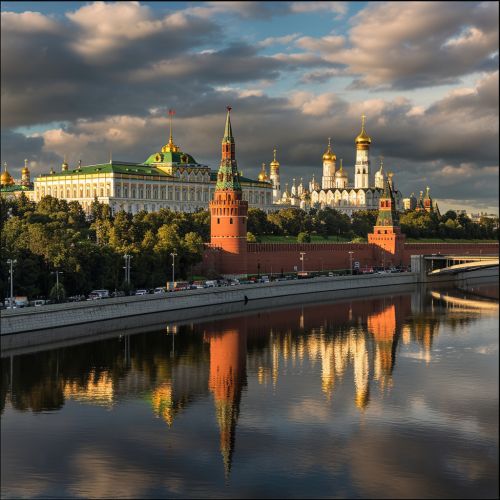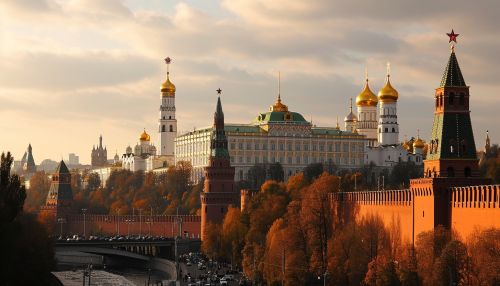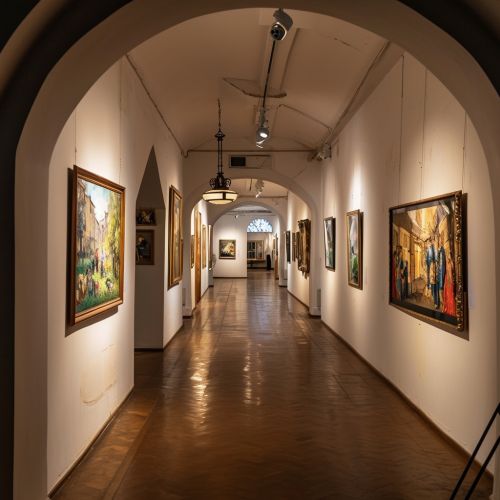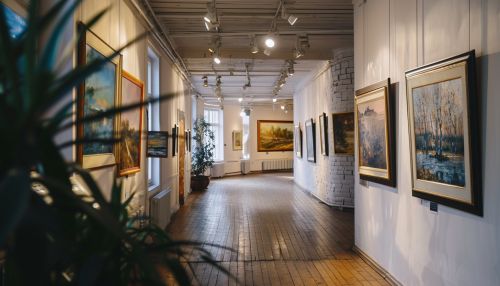Culture of Russia
History
The Culture of Russia has a rich and varied history that spans centuries. From the early Slavic tribes to the formation of the Russian state, the culture has been influenced by a variety of factors. The Mongol invasion in the 13th century had a profound impact on the development of Russian culture, as did the Christianization of Russia in the 10th century.


The 18th and 19th centuries saw a flowering of Russian culture, with the emergence of great writers like Leo Tolstoy and Fyodor Dostoevsky, composers like Pyotr Ilyich Tchaikovsky and Sergei Rachmaninoff, and artists like Ilya Repin and Ivan Aivazovsky. The 20th century, marked by the Russian Revolution and the establishment of the Soviet Union, brought about significant changes in Russian culture.
Literature
Russian literature is renowned for its depth and complexity. The 19th century is often referred to as the "Golden Age" of Russian literature, with the works of Tolstoy, Dostoevsky, Anton Chekhov, and Nikolai Gogol achieving international acclaim. The 20th century saw the emergence of great Soviet-era writers like Boris Pasternak, Aleksandr Solzhenitsyn, and Mikhail Bulgakov.
Music
Russian music has a long and diverse history. From the sacred music of the Orthodox Church to the folk tunes of the Russian countryside, music has always played a central role in Russian culture. The 19th century saw the emergence of the "Russian Five", a group of composers who sought to create a distinctly Russian style of classical music. The 20th century saw the rise of Soviet-era composers like Dmitri Shostakovich and Sergei Prokofiev, as well as the popularity of Russian pop and rock music.
Visual Arts
The visual arts in Russia have a rich history, from the iconic religious paintings of the Orthodox Church to the avant-garde movements of the early 20th century. The 19th century saw the rise of the Peredvizhniki, a group of realist painters who sought to portray the realities of Russian life. The 20th century was marked by the emergence of avant-garde artists like Wassily Kandinsky and Kazimir Malevich, as well as the socialist realism of the Soviet era.


Cuisine
Russian cuisine is diverse and unique, reflecting the country's vast geography and multi-ethnic makeup. Traditional Russian dishes include borscht, a beetroot soup, pelmeni, a type of dumpling, and blini, thin pancakes. Russian cuisine also features a variety of fermented foods, such as pickles and sauerkraut, as well as a wide range of breads and pastries.
Religion
Religion has played a significant role in shaping the culture of Russia. The Russian Orthodox Church has been a major cultural institution for centuries, influencing the country's music, art, and literature. The 20th century saw a period of state atheism under the Soviet Union, but the post-Soviet period has seen a resurgence of religious belief and practice.
Language
The Russian language is a Slavic language and is the most widely spoken Slavic language. It is the official language of Russia and is also spoken in many former Soviet republics. The Russian language has a rich literary tradition and has been the vehicle for the works of some of the world's greatest writers.
